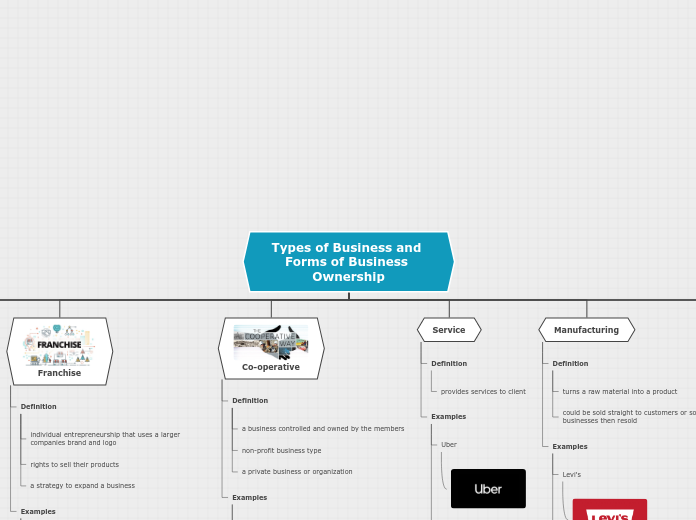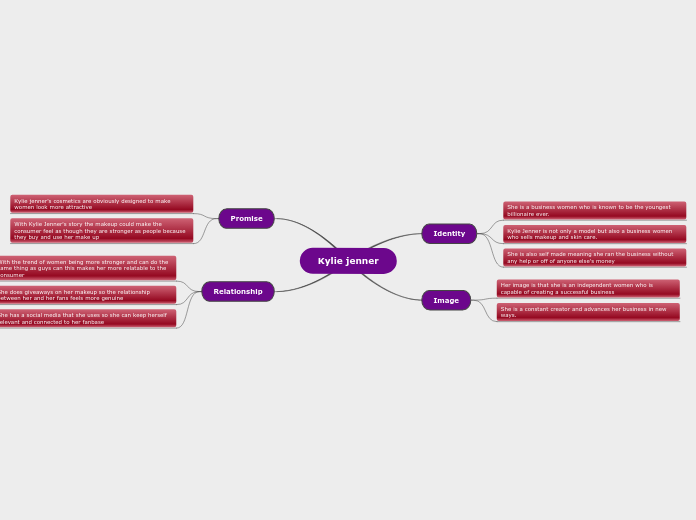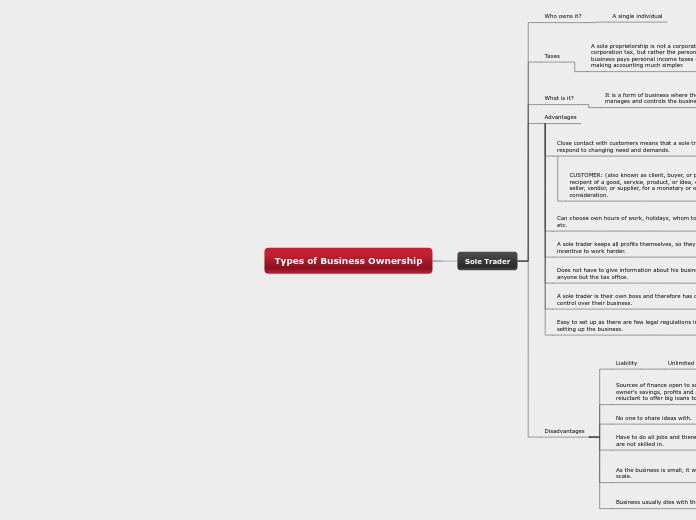4 types of businesses
corporations
one of many ways to formally organize a business. Structuring a business as a corporation has a number of important legal requirements and consequences that impact investors.
advantage- Limited liability. The shareholders of a corporation are only liable up to the amount of their investments. The corporate entity shields them from any further liability.
example- Wal-Mart
disadvantage- Double taxation. Depending on the type of corporation, it may pay taxes on its income, after which shareholders pay taxes on any dividends received, so income can be taxed twice.
partnership
A legal form of business operation between two or more individuals who share management and profits.
it’s easy to change your legal structure later if circumstances change
example would be Microsoft founders are Bill gates and Paul Allen.
there is a risk of disagreements and friction among partners and management
franchises
a business in which the owners, or "franchisors", sell the rights to their business logo, name, and model to third party retail outlets, owned by independent, third party operators
Owning a franchise allows you to go into business for yourself, but not by yourself. A franchise provides franchisees with a certain level of independence where they can operate their business.
Subway is an example of a franchise.
Subtopic
Franchisees are required to operate their businesses according to the procedures and restrictions set forth by the franchisor in the franchisee agreement. These restrictions usually include the products or services which can be offered, pricing and geographic territory.
sole proprietorship
a business owned and operated by one person, which is not registered as a corporation or a limited liability company.
disadvantages of sole proprietors is unlimited liability under which the owner's personal assets can be used to pay creditors in case of bankruptcy.
advantage of forming a sole proprietorship is the taxation rules established by the Internal Revenue Service. Sole proprietors are not required to file separate tax returns for their business. Income made from the business is counted as personal income and owners pay taxes according to their individual tax rates.
hair stylist that have their own shop









